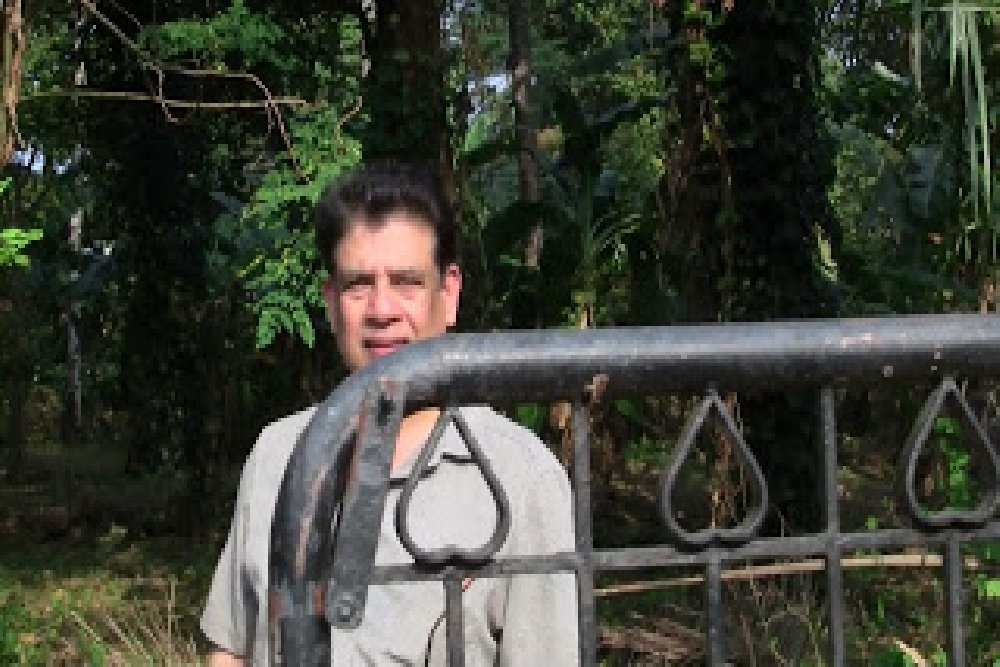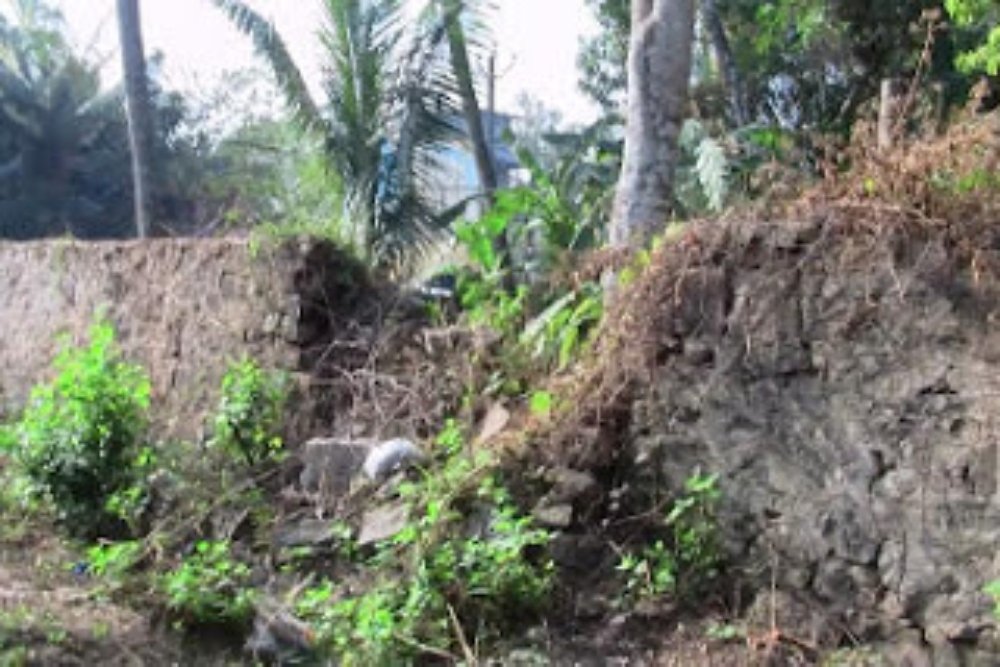In my earlier blog, I have narrated the difficult process of buying a property in India together with some interesting anecdotes. After a year of purchase of the property,I was so pleased as the prices started going up. When I was in India the following year, the same broker contacted me and asked me whether I was interested in selling the property. Those days, my intention was to construct a house, once I return from Nigeria, therefore I told the broker very clearly that I had no intention in selling it. When I received the citizenship of the UK in early 1990s I changed the mind in constructing a house.
Then I thought of constructing a multi storey high rising tower, as an investment. I worked out the financing from bank and selling the flats at the launch of the project to recuperate the borrowed money. I discussed about the construction with a consultancy, who enumerated various regulations in obtaining the licenses and permits. The consultant also informed me the scandalous methods, through which the officials extract money from the investors. I detest bribing officials, paying donations to the ruling party and dancing to the tune of political clowns. Those days I had enough trouble from neighbours, as they dump waste in my plot of land. Always there were issues with the compound wall damage and the trouble in repairing it.The compound wall on the west side could not be repaired unless the tree was cut and removed because the teak tree of the neighbour encroached into my side of the land, pushing the compound wall to collapse. The neighbour turned down my reasonable request to cut the tree, even after several polite representations. I noticed unwanted people and cattle started trespassing the land owing to the breach in the compound wall. Collapsing compound wall and possible physical harm to human beings and animals had public liability implications. In the end,I have to resort to suing the neighbour in a civil court for which one of my cousins Josettan helped me to be my power of attorney (POA). I gave up the idea of construction of a tower due to the bureaucracy. In view of the state of disrepair of the compound wall, I made up my mind to sell the property in early 2010.
I was trying to sell the property, through advertising in Malayalam news papers, online real estate brokers and other conventional brokers at Thrissur ,Kerala, India. The price of the property was increasing exponentially to whet my appetite. I was getting regular emails and telephone calls about the same.Normally all buying expenses such as for stamp paper, registration , documents writing are met by the buyer. Both buyer and seller each pay 2.5% as the commission to the broker. Sometimes, there will be more than one broker, then the fee will be divided. In India, unlike in the UK or in developed countries, there is an unconventional way of property transaction, where the whole money involved is not put on the title deed. Most of them do not want to show the actual price on the stamp paper, thereby saving a lot of money. For example if the agreed sale price of a property is £100.00, then mutually agree to give and take £60.00 cash and put £40.00 on the stamp paper. Therefore the money transferred in bank statement will show only £40.00. By doing so, the buyer saves on stamp duty and the seller saves money on capital gain tax. This leads to reduced tax going to Indian Income Tax and the state government. The seller needs to launder the unaccounted money, by paying too much for food and consumer goods, creating inflation. There are fair value assessment for each property and strict regulations on land transactions in India,but the government seldom enforce on such irregularities. I did not like this shady dealings and I had told brokers that the buyer has to pay the whole selling price through bank transaction. This affected the marketing to a wider public, because a lot of real estate dealers who flip for a profit were not attracted to my property. However I had a number of offers, from developers and corporate clients, owing to the position of the property facing the national highway (NH 47). But they would not close transaction within a year. One such prospective buyer, was a property developer who offered 25% more than the market value, but the closing would be after the construction of their tower! Another was a managing director of a schedule bank whose offer was not that great, but he was prepared to close the transaction within days whilst I was visiting Thrissur, during the Christmas holidays. I thought that was reasonable, and I accepted his offer. Waiting indefinitely is not ideal as circumstances of the party might change or the government regulation might change. These can affect the terms of the sale contract and the transferring of proceeds to a foreign country.
Many of the readers worldwide might be eager to know the complicated process of selling, and I shall explain it on a seller’s perspective. There are a lot of documentations to be arranged by the seller, who is technically called the vendor. These include original title deed and the back dated title deeds, possession certificate which is available from the village office,encumbrance certificate from registrar office to show that there is no lien or attachment on the property. The buyer needs to search about the property in the relevant offices to rule out planning restrictions, previous contamination and previous paddy field. The vendor, needs to produce receipts for previous years electricity and land revenue tax payment. I also submitted a statement on the civil case with the neighbour. Since the purchaser was an executive of a limited company, I got the copy of the resolution from the company directors that they had resolved to buy my property and that they had empowered the managing director to buy the property on behalf of the company. I also got a copy of the appointment letter of the managing director and a copy of his passport for identity. From my side, I handed over copies of my British passport, Overseas Citizen of India (OCI)document, Permanent Account Number (PAN) card of Indian Income Tax and my bank details to the solicitor of the purchaser. Normally the contract between the buyer and the seller will stipulate the closure date, at least three months after the contract date, but we mutually agreed to close the sale within days. The solicitor of the purchaser drafted a title deed, which I have shown to another solicitor to reassure that nothing untoward has been written. As he suggested, I made minor corrections on the draft deed and handed over it to the purchaser. On the closing day, the purchaser and myself went to the bank and the manager helped to transfer the whole purchase price from the company account into my Non Resident Ordinary (NRO ) account thereby closing the transaction. Now we proceeded to the registration office nearby for registering the deed. We waited for some time to meet the sub registrar. He examined the credentials of the seller and the purchaser as written on the deed and also read the whole deed in a number of pages. The sub registrar asked my full name and in a sneaking suspicion he compared it with that on the passport. He verified whether I have received the fund as set out in the deed, and asked me and the purchaser to sign on the appropriated boxes. The purchaser had arranged two witnesses and they too signed the deed. Finally the sub registrar signed and put the official stamp validating the document. Now whole document has to be entered in the ledger kept in the registrar office. I was informed that the original copy of the deed will be available only after three months.The broker, Abubacker asked me to pay his 2.5% commission in cash, but I insisted that I would pay only through bank. Since he had no PAN card, he arranged two others with PAN card and I paid cheques in their names. I also got a receipt from Abubacker that he has received the whole commission for the sale.
Next hurdle was repatriating the proceeds of the sale into my UK account.By then I found a good chartered accountant at Thrissur, who had the technical knowledge of transferring fund overseas. I contacted my bank manager about the transfer, but he insisted in getting the copies of the current and previous title deeds to establish the source of income, in addition to documents from the accountant. Therefore, I returned to the UK, meanwhile the accountant worked out the tax at 20% minus the 1% of Tax Deducted at Source (TDS).The buyer has to pay TDS in advance if the vendor is a foreign passport holder. I paid back the buyer the 1%, he had advanced to the Indian Income tax. On computing the tax, the accountant also made allowances for retaining the property for 34 years and for the improvements. As soon as the registrar office released the title deeds, I booked a flight to go to India in March 2015. I paid the tax in a government bank, thereupon the accountant prepared two certificates, called Form 15CA and Form 15CB which were required for repatriation of funds. I went to the bank with all required title deeds, Form 15CA and Form 15CB, thereby the manager transferred the fund from NRO to Non Resident External (NRE) account. The manager asked me to write a formal letter with the details of my UK bank account to transfer the whole fund in pound sterling. By the time I returned home in the UK, the fund was in my bank account.
From the above description, one can appreciate why a lot of laid back people do not bother going through this hassle of investing in India. Many of my Keralite friends who had enough cash did not bother to buy property those days in 1980s.The managing director who bought the property, shared my strong view on bribery and shady dealings. But later I realised that the sub registrar demanded bribe money to facilitate the process of registration, which might have compromised his principle. In the end I felt I was a winner, since I disposed of the property at the appropriate time.


Comment Form